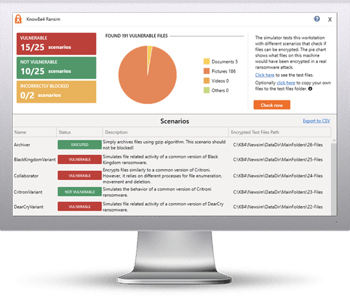.jpg?width=369&name=iStock-1288032028%20(1).jpg) Organizations need to ensure that their data backups aren’t tampered with by attackers, according to security firm Datto. In an article for Channel Futures, Datto explained that backups are an important layer of defense, but they aren’t foolproof. The firm also notes that, while encryption may keep your data private, it won’t prevent a ransomware attacker from simply putting another layer of encryption on top of it and locking you out. Additionally, if an attacker gains access to your internal accounts, they might be able to access the data unencrypted.
Organizations need to ensure that their data backups aren’t tampered with by attackers, according to security firm Datto. In an article for Channel Futures, Datto explained that backups are an important layer of defense, but they aren’t foolproof. The firm also notes that, while encryption may keep your data private, it won’t prevent a ransomware attacker from simply putting another layer of encryption on top of it and locking you out. Additionally, if an attacker gains access to your internal accounts, they might be able to access the data unencrypted.
Datto says organizations should be on the lookout for the following vulnerabilities associated with backups:
- “Backup software: Backup software solutions, by nature, require a high level of access. Hackers have been known to steal a backup administrator’s credentials as a backdoor to access systems and data.
- “Backup files: Backup files can be targets simply because backup file extensions—for example, BAK–are easy to find. Hackers may gain access to the backup software and either turn off or delete the backup files.
- “Remote access: Since many backup products must connect remotely to servers to back them up or to administer backups, password authentication can open up a path to attack protected systems simply because passwords are easy to steal.
- “Backup encryption: It isn’t uncommon for backups to be encrypted. However, if attackers gain access to this key, they can read the backup and/or change the key to make the data inaccessible.”
Datto recommends implementing two-factor authentication and isolating backups to prevent attackers from accessing them. Additionally, they suggest using key-based SSH authentication instead of passwords for remote access.
It’s also worth noting that, as organizations have gotten better about backing up their data, ransomware actors have started exfiltrating the data and holding its confidentiality for ransom. As a result, it’s best to prevent the attackers from gaining access in the first place. New-school security awareness training can help your organization avoid falling victim to these attacks by teaching your employees to follow security best practices.
Channel Futures has the story.
 Here's how it works:
Here's how it works:




